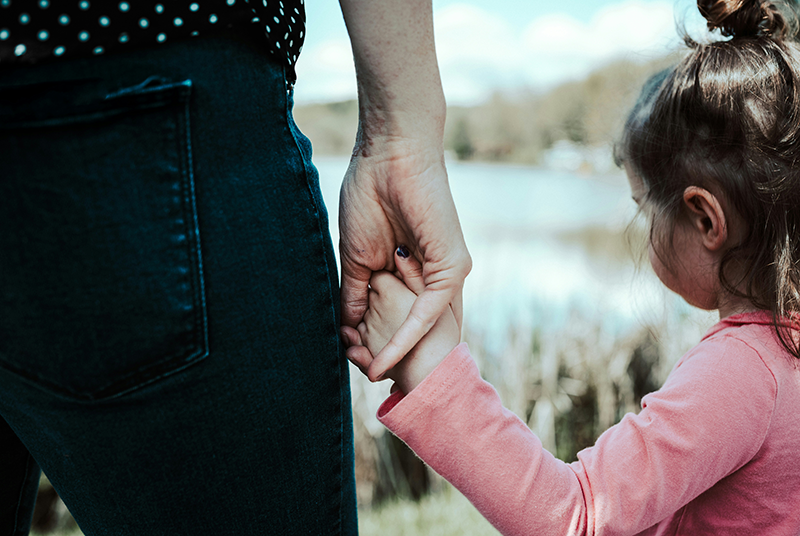
On the 30th of April 2025 Autism-Europe submitted a report to the United Nations Special Rapporteur on the rights of persons with disabilities, responding to the call for input on: “Care and support for children with disabilities within the family environment and its gendered dimensions.” This submission sheds light on the significant challenges faced by families supporting autistic children and adults across Europe, highlighting the disproportionate and often overlooked burden placed on mothers and other informal caregivers.
The report combines data from a survey conducted by Autism-Europe among our members and with analysis of the recent ‘National long-term care’ reports submitted by EU Member States under the 2022 Council Recommendation on affordable, high-quality long-term care. It is framed within the international human rights obligations set out in the CRPD, CRC, and CEDAW, offering a comprehensive picture of both lived experience and systemic gaps in care provision.
A clear gender imbalance in care
Of the 159 respondents who responded to the survey as an informal carer, an overwhelming 83% were women. Mothers were most often identified as the primary caregivers, with only a small minority of families reporting shared or father-led caregiving responsibilities. This stark gender disparity reinforces the findings of other European reports and reveals how entrenched gender roles continue to shape care responsibilities, often at the expense of women’s economic security and mental health.
Over 85% of families reported that caregiving negatively impacted household income. Many mothers were forced to reduce working hours, accept lower-paid roles, or leave the workforce entirely. These adjustments came with long-term consequences for pension rights, career development, and family stability.
Emotional strain and lack of support
Caregivers also reported serious effects on their emotional and physical well-being. More than 70% said caregiving had taken a toll on their health, with many describing feelings of isolation, chronic stress, and exhaustion. Several caregivers shared personal reflections illustrating the emotional burden of 24-hour care without adequate support or respite. Despite this, mental health support for caregivers was reported to be scarce or inaccessible.
Families caring for their autistic loved ones described a persistent sense of invisibility within both society and the broader disability community, especially those caring for those with high support needs. Many noted that societal stigma continues to reinforce exclusion and deepen the pressure faced by caregivers.
Barriers to services across lifespan
The report reveals major gaps in access to care and support services. While some early intervention and therapy programs exist, families consistently highlighted long waiting times, bureaucratic hurdles, and regional disparities. This lack of timely, affordable, and appropriate support places additional stress on caregivers during the most critical periods of their child’s development.
These challenges become even more acute as autistic young people transition to adulthood. Families reported that services often end or decline sharply after age eighteen, despite ongoing and sometimes increasing support needs. In many cases, outdated institutional models still dominate, leaving families to shoulder the full burden of care.
Policy gaps and lack of inclusion
Only a minority of families reported receiving meaningful financial support. Application processes for caregiver allowances or disability benefits were frequently described as complex, burdensome, and inconsistent. The report also highlights the limited involvement of caregivers and autistic people in policy design and evaluation processes. Few respondents had been consulted or invited to share feedback on services, and data collection efforts on informal care were seen as insufficient and poorly disaggregated by gender or disability.
Recommendations within the report
Autism-Europe calls for urgent action to address these challenges through concrete, rights-based reforms. The following key recommendations were presented to the Special Rapporteur:
- States must develop and implement comprehensive support services and rights-based policies tailored to the needs of informal carers, ensuring that caregiving responsibilities do not come at the expense of financial security, well-being, or gender equality.
- Legislative reforms are needed to enhance the right to care leave and extend social protection schemes. These should include direct financial assistance, respite care, and flexible employment options to support carers in remaining economically and socially active.
- Autistic people and their families must be genuinely involved in the design, monitoring, and evaluation of care policies and services. Their lived experience is a critical resource that should inform public decision-making at all levels.
- States should invest in long-term, person-centred care systems that begin with equitable access to early intervention and continue through adulthood, with particular attention to the needs of those requiring high levels of support.
- National data collection must be strengthened and disaggregated by disability status, gender, and age to ensure that care policies are evidence-based and address the real needs of families.
- Governments must take a gender-sensitive approach to care policy, recognising the disproportionate impact on women and promoting the redistribution of unpaid care work.
We extend our heartfelt thanks to all our members who participated in the survey and made this report possible. Your contributions have been essential in ensuring that the voices of caregivers within the autism community are heard at the international level.
Link to the call for inputs by the Special Rapporteur is available here.
The full submission is available here.
Autism-Europe remains committed to advocating for a more inclusive and supportive Europe, where the rights and dignity of autistic people and their families are fully upheld.
Photo by Sandra Seitamaa on Unsplash